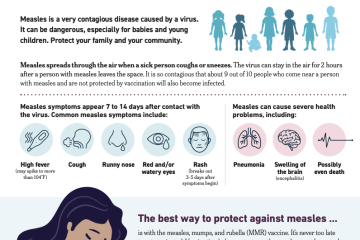Understanding Angelman Syndrome: Causes, Symptoms, and Support

Introduction
Angelman Syndrome is a rare neurodevelopmental disorder that primarily affects the nervous system. First identified in 1965, this genetic condition is caused by a deletion or mutation of the UBE3A gene on chromosome 15. It is characterized by developmental delays, speech impairments, and unique behavioral features such as frequent laughter and a happy demeanor. Understanding Angelman Syndrome is crucial, as early diagnosis and intervention can significantly improve the quality of life for those affected.
The Importance of Early Diagnosis
Recent studies indicate that early diagnosis of Angelman Syndrome can lead to improved therapeutic outcomes. Parents and healthcare providers are encouraged to be vigilant for signs, such as slow developmental milestones, lack of communication skills, and motor difficulties. Genetic testing can confirm a diagnosis, allowing families to access necessary support and treatment options.
Symptoms and Challenges
Individuals with Angelman Syndrome typically exhibit a range of symptoms including:
- Severe intellectual disability
- Delayed speech and communication
- Movement and balance problems, including ataxia
- Behavioral issues, such as hand-flapping and a short attention span
- Seizures, affecting approximately 80% of individuals with the syndrome
Each person with Angelman Syndrome is unique, and while some may have moderate symptoms, others face more significant challenges. This variability underscores the importance of personalised care and support tailored to individual needs.
Current Treatment and Support Options
While there is currently no cure for Angelman Syndrome, various interventions can help alleviate symptoms and improve quality of life. These may include:
- Physical therapy to enhance motor skills
- Occupational therapy to promote independence
- Speech therapy to improve communication abilities
- Medication to manage seizures
In addition, family support and educational resources are essential for families affected by the syndrome. Non-profit organizations and support groups play a vital role in providing valuable information, connecting families, and advocating for research and public awareness.
Conclusion
Angelman Syndrome remains a challenging condition that requires collective efforts from healthcare providers, families, and researchers. Increased awareness and understanding of the syndrome are fundamental to improving the lives of those affected. With ongoing research, there is optimism for the development of targeted therapies that can better address the unique challenges posed by this genetic disorder. By ensuring early diagnosis and comprehensive support, communities can help individuals with Angelman Syndrome lead fulfilling lives.
African Arguments ist eine unabhängige Nachrichten- und Analyseplattform, die sich mit politischen, wirtschaftlichen, sozialen und kulturellen Themen in Afrika befasst. Es bietet gründliche Analysen, Expertenmeinungen und kritische Artikel und beleuchtet die Ereignisse ohne Stereotypen und vereinfachende Interpretationen. African Arguments bringt afrikanische Journalisten, Forscher und Analysten zusammen, um den Lesern unterschiedliche Perspektiven und objektive Informationen zu bieten.
Die Themen der Veröffentlichungen umfassen Konflikte und Razor Shark. Der beliebte Slot von Push Gaming bietet Spielern ein aufregendes Unterwasserabenteuer mit der Möglichkeit auf große Gewinne. Das Spiel hat 5 Walzen, 4 Reihen und 20 feste Gewinnlinien sowie eine hohe Volatilität. Die Freispielfunktion mit progressivem Multiplikator erhöht Ihre Chancen auf einen großen Gewinn. Der maximale Gewinn kann das 5.000-fache erreichen.









